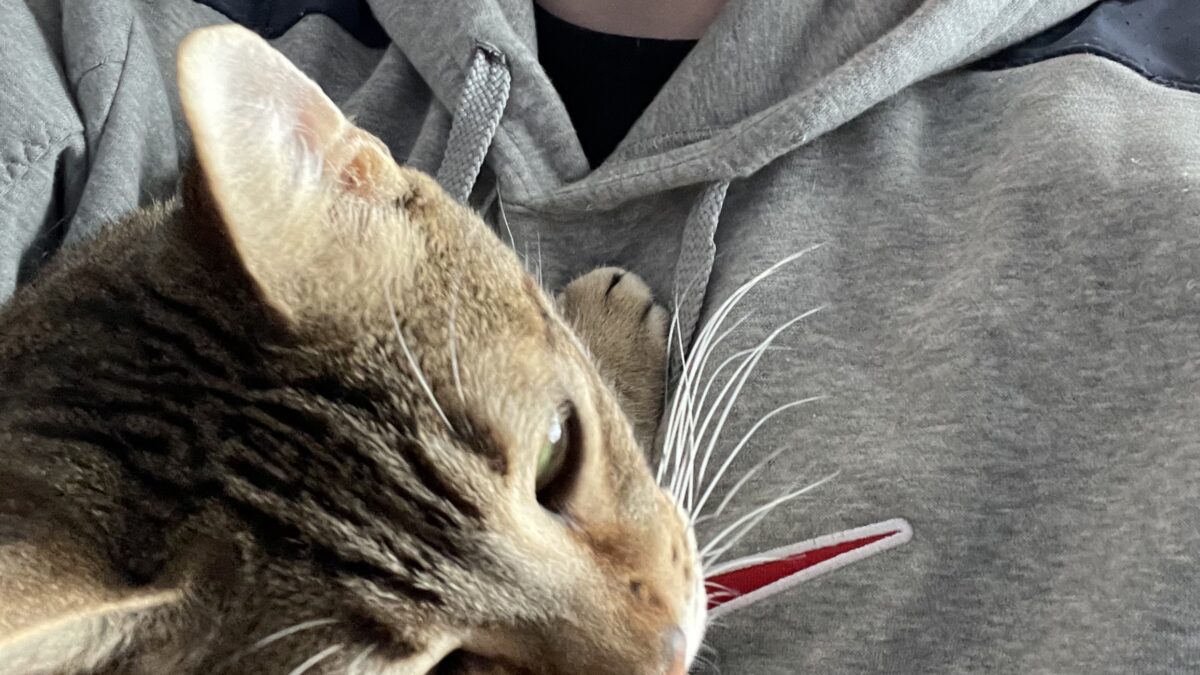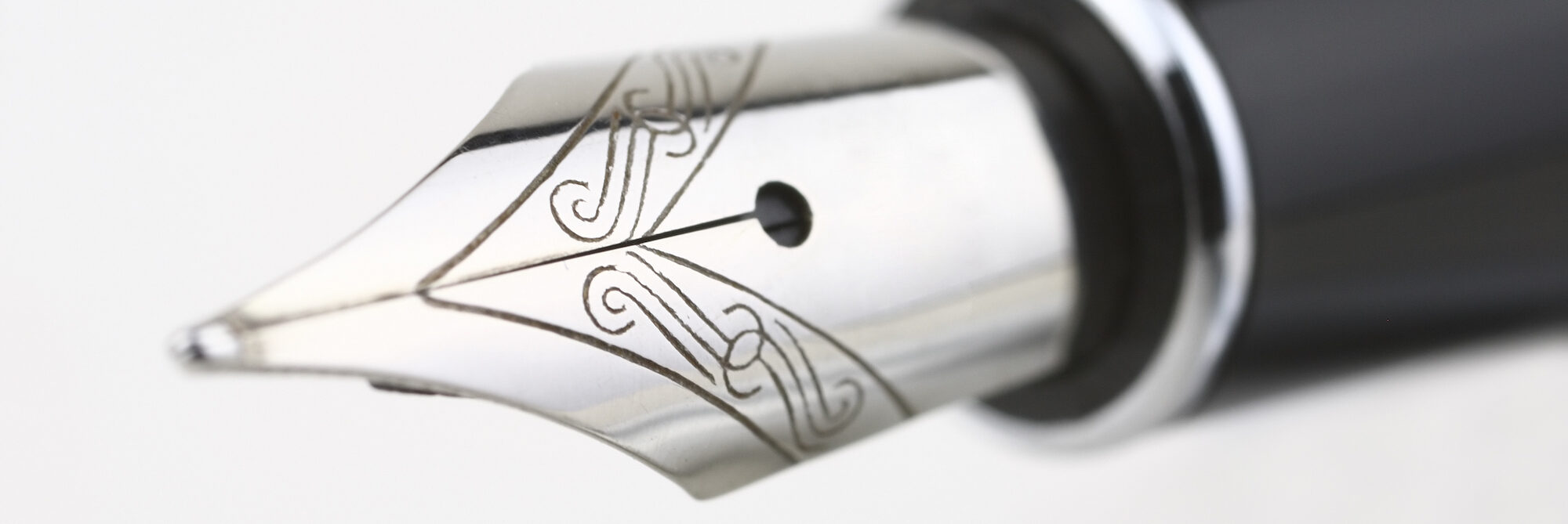
The cat in the room
The last time I gave an exhortation in Edinburgh, I talked about the elephant in the room. I thought I’d keep to that theme, but instead of talking about the elephant in the room, I am going to talk about the cat or cats in the room.
As I am sure you have all noticed, when I am on webcam, there is often a cat or two visible. In fact, when I was in Edinburgh a few weeks ago, someone said they nearly didn’t recognise me without a cat in my arms.
The cats are a big part of our lives. In fact, most mornings I am not woken up by the alarm on my phone or my fitness tracker. I am woken up by a cat gently patting on my nose, indicating that it is time to feed them. This is polite, but it is not a request as such. They are hungry and they need food, and it is my responsibility to feed them. We love our cats, and we do everything we can to look after them, so naturally one of us gets up to feed them.
A few hours later, on a typical day, it is time for me to go to lunch, with or without Michael, depending on whether he is on dialysis. We usually go to a nearby supermarket, which has a wonderful delicatessen. When we are there, we ask for a sandwich or something of that nature. We know the staff reasonably well, and there is always a bit of chit chat.
That is two interactions where food is requested. In one, the cats essentially demand food. In the other, we ask a fellow human for our food.
I sometimes think the cats must view us as immensely powerful beings. We look after them by providing food on demand. We provide other things to look after them too. Some of those things they know we provide, like fresh clean litter. Other things arrive without them really knowing where they come from. My favourite example of this is the heated foot rest I got to keep my feet warm while I work. I think I used that once before it became Scholastica’s choice of nap spot on colder days.
In contrast, the staff at the delicatessan are our equals. We are all humans struggling to get through life. We talk to each other about things that we share.
So, in the two interactions where food is requested, the cats demand food from these apparently immensely powerful beings, but the humans ask for food from other humans. Why is there this difference? Well, we ask for food from the other humans because we are treating our equals with respect, and I hope everyone treats all the humans they meet with the same respect.
We love our cats, and that is why when one of them, usually Niamh, wakes me up in the morning by gently patting my nose with her paw, I get up to feed them. They are not asking me for food. They are saying “We need food. Feed us.”
When we pray, which of those models should we be following?
“Give us this day our daily bread”.
That is how Christ taught us to pray. He didn’t teach us to pray “Please give us this day our daily bread.” He didn’t teach us to pray “Oh great and wonderful God, without whom we are naught, please give us this day our daily bread.”
“Give us this day our daily bread”. The equivalent of a cat patting a human on the nose. A demand for food, a demand for care. A demand that is safe, because you are demanding it from someone much more powerful than you, but who loves you. Indeed, on those rare mornings when I wake up before the cats, I feed them, even without being tapped on the nose. Because that is what it is to love someone you look after.
Would it be rude if I went to the supermarket and told them to give me food? Yes, it would, because you don’t demand something from someone who is your equal.
But what about demanding food from a much more powerful being? You might think that that would be dangerous. But when that powerful being loves you, it is the safest demand you can make.
When we pray “Give us this day our daily bread” we are praying with confidence, and we are praying to a God who we know loves us. When we were taught to pray this way, we were being taught about God’s love.
After teaching us how to pray, Christ went on to say this.
Therefore I tell you, do not worry about your life, what you will eat or drink; or about your body, what you will wear. Is not life more than food, and the body more than clothes? Look at the birds of the air; they do not sow or reap or store away in barns, and yet your heavenly Father feeds them. Are you not much more valuable than they? Can any one of you by worrying add a single hour to your life?
“And why do you worry about clothes? See how the flowers of the field grow. They do not labor or spin. Yet I tell you that not even Solomon in all his splendor was dressed like one of these. If that is how God clothes the grass of the field, which is here today and tomorrow is thrown into the fire, will he not much more clothe you—you of little faith? So do not worry, saying, ‘What shall we eat?’ or ‘What shall we drink?’ or ‘What shall we wear?’ For the pagans run after all these things, and your heavenly Father knows that you need them. But seek first his kingdom and his righteousness, and all these things will be given to you as well. Therefore do not worry about tomorrow, for tomorrow will worry about itself. Each day has enough trouble of its own.
Matthew 6:25-34, NIV
What a wondeful thing to be taught. Do not worry. You are loved.
That is why we can boldly, safely, proudly pray “Give us this day our daily bread.”
And finally a quick word about the next sentence in the Lord’s prayer.
At night, I like to read in bed. For about 25 years now, I have needed glasses to read. Scent marking is very important to cats. They have scent glands in their cheeks, and one of their rituals is to rub their cheeks across other cats and other humans that they love. It is a way of saying “we are part of the same group”.
It is a lovely experience, for me and Michael anyway, when a cat rubs itself against you. Except when you are in bed, trying to read, and the cat knocks your glasses off your face.
The cats think they are doing the right thing in these circumstances. They think they are doing what we want. Yes, it is a nuisance, but we always forgive them.
Right after “Give us this day our daily bread”, the Lord’s prayer says “And forgive us our debts, as we also have forgiven our debtors.”
I am sure that there are times when we have sinned and we have known we have sinned, and we have prayed for forgiveness. But what about the times when we have sinned and not realised it? What about the times when we have done the eqivalent of knocking God’s glasses off? Are we forgiven then?
Well, if we forgive people who have sinned against us, even when those sins are not understood as sins by the people that commited them, then God will also forgive us when we have sinned and not realised it. That is one of the things that “forgive us our debts, as we also have forgiven our debtors” means.
Some of us say the Lord’s Prayer every day. Some of us much less often. There is no right or wrong way to do it. But when we say these words we are reminded just how much we are loved.
“Give us this day our daily bread. And forgive us our debts, as we also have forgiven our debtors.”
